All Cod are Scrod, but Not All Scrod Are Cod. How Odd.
While preparing Eric Jorgensen’s hearty fish chowder with cod, I found myself pondering the term ‘scrod ‘. My father’s belief that scrod referred to young cod prompted me to delve into its meaning. To my surprise, I discovered that ‘scrod’ is a term that varies in interpretation across different regions.
Scrod, a term frequently encountered on menus in seafood restaurants, is often a subject of curiosity and confusion for many diners. What exactly is scrod? Where does it come from, and what distinguishes it from other types of fish? The answers to these questions reveal a fascinating story about culinary tradition and regional cuisine.
S-C-R-O-D
The term “scrod” primarily refers to a young cod or haddock, typically caught in the cold waters of the North Atlantic Ocean. Its origins can be traced back to New England, particularly Massachusetts, where it has been a staple of local seafood cuisine for centuries. The word “scrod” itself has murky origins, with some suggesting it derives from the Old Norse word “skroth,” meaning “small piece.”
One of the defining characteristics of scrod is its tender, mild-flavored flesh, making it a popular choice for seafood lovers who prefer a delicate taste and texture. Scrod can be baked, broiled, grilled, or fried when prepared properly, offering a versatile canvas for culinary creativity.
New England Scrod
Scrod is often served in traditional New England cuisine, allowing its natural flavor to shine through. It might be accompanied by classic sides like mashed potatoes, steamed vegetables, or a wedge of lemon for a refreshing citrus note. Alternatively, it can be incorporated into more complex dishes, such as seafood chowder, or baked with a flavorful breadcrumb topping.
Despite its popularity in New England, the term “scrod” can be a source of confusion outside the region, where it is less commonly used. In some areas, it may be used generically to refer to any small, white-fleshed fish, leading to ambiguity for diners unfamiliar with its specific meaning.
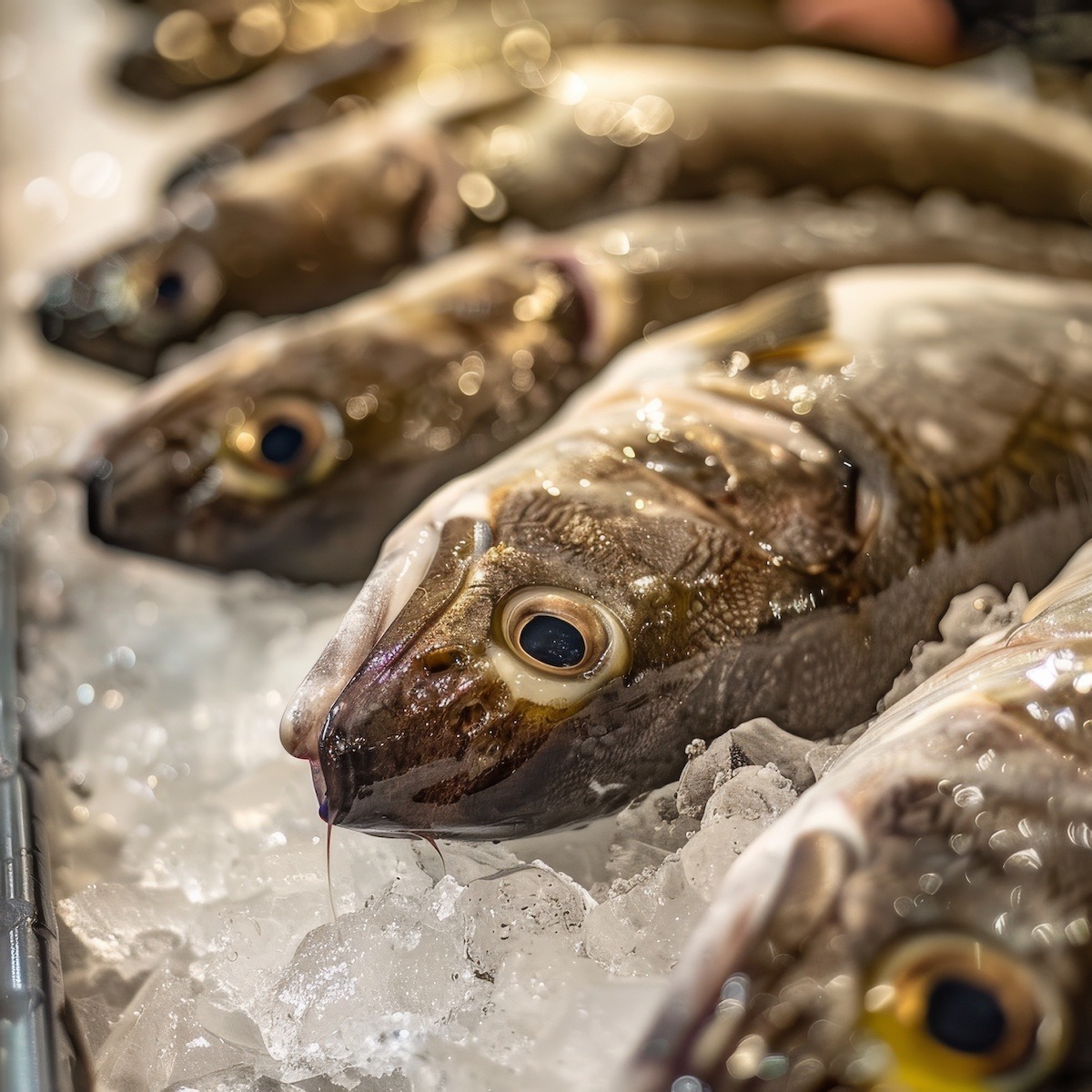
Age Matters
Another point of confusion arises from the fact that scrod is not a distinct species of fish but rather a stage in the cod or haddock life cycle. As these fish mature, they grow larger and are referred to by different names, such as “cod” or “haddock,” depending on the species. Therefore, scrod is a designation based on size rather than a separate variety of fish.
Despite its humble origins, scrod holds a cherished place in the culinary heritage of New England, where it continues to be celebrated as a symbol of the region’s maritime bounty. Whether enjoyed in a rustic seaside tavern or an upscale seafood restaurant, scrod offers a taste of tradition and a connection to the rich culinary history of coastal communities.
So, the next time you encounter scrod on a menu, you can confidently order, knowing you’re about to savor a delicious piece of New England’s culinary heritage.
Other Fishy Definitions for Scrod
Smallest Catch Remaining On Deck interprets the acronym “SCROD” in a specific fishing context. In some fishing communities, particularly those with a strong maritime tradition like those in New England, fishermen might use terms like “scrod” to refer to specific aspects of their trade.
In this interpretation, “Smallest Catch Remaining On Deck” suggests the smallest fish or catch on the fishing vessel’s deck after sorting or processing larger catches. It implies that the larger, more desirable fish have already been dealt with, leaving only the smaller specimens behind.
While this interpretation of “SCROD” might not be as widely recognized or used as its culinary counterpart, it demonstrates the adaptability of language within specialized industries and communities. Such terminology could vary among fishing fleets or regions, reflecting each maritime community’s unique practices and traditions.
Special Catch Received on Day can be seen as another interpretation of the acronym “SCROD,” particularly within a fishing or seafood context. In this interpretation, “special catch” refers to a unique or noteworthy haul of fish that was received or caught on a particular day.
Fishermen and seafood suppliers might use terms like “scrod” to categorize or label different types of catches, distinguishing between standard or routine catches and those that are exceptional or of particular interest. This could include rare species, unusually large specimens, or catches that meet specific quality criteria.
By identifying a catch as “special” and noting the day it was received, fishermen and seafood vendors can highlight the freshness and uniqueness of the product, potentially appealing to customers looking for premium or exclusive seafood options. This practice aligns with the emphasis on freshness and quality often associated with seafood markets and restaurants.
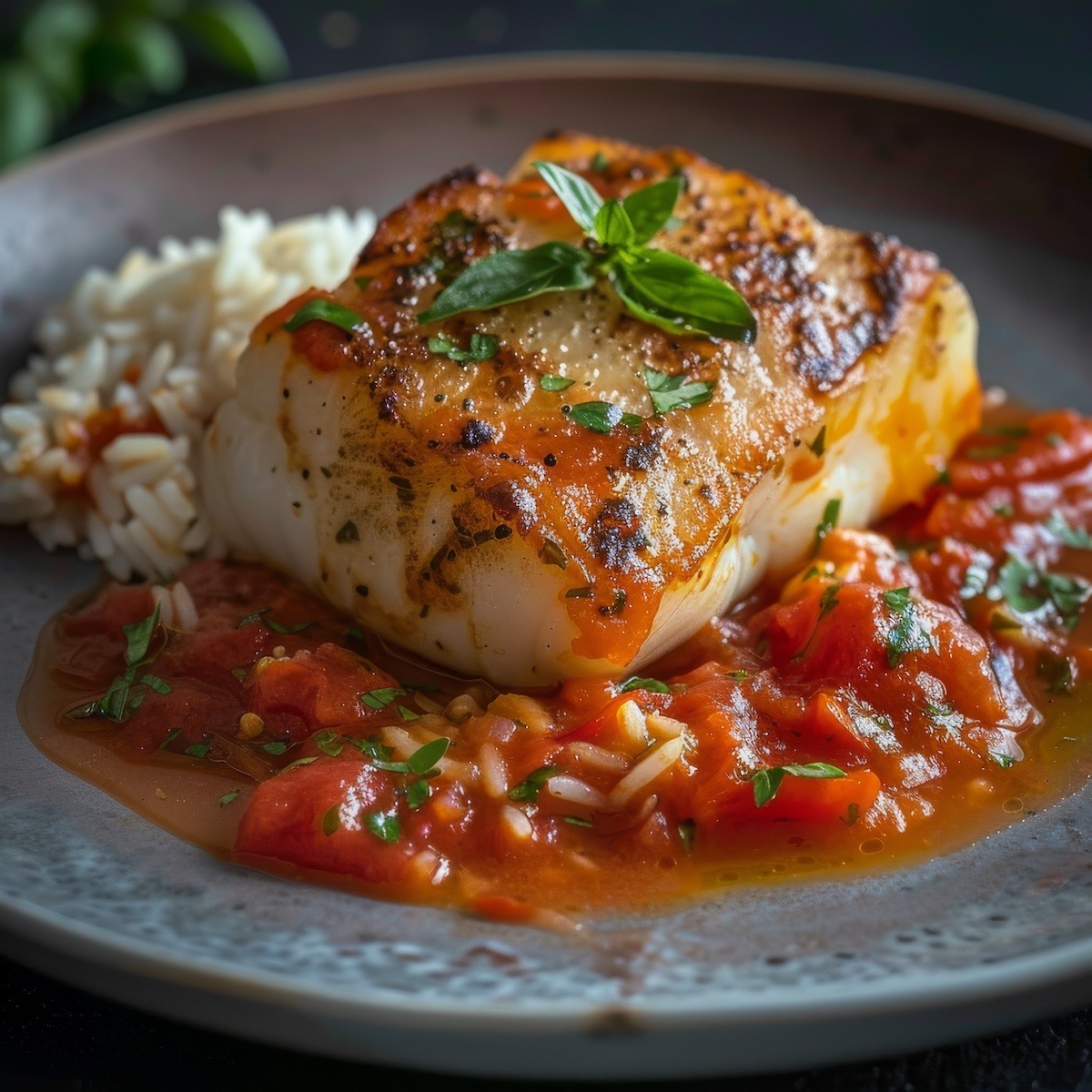
And Then There Is SCHROD
The term “schrod” is closely related to “scrod” but typically refers to a specific preparation or dish rather than a type of fish. While “scrod” generally denotes a young cod or haddock, “schrod” typically refers to a method of cooking rather than a specific species of fish.
In culinary terms, “schrod” often refers to a dish made from small, young cod or haddock fillets that are typically baked or broiled with various seasonings and toppings. The fillets are usually mild in flavor and tender in texture, making them well-suited to various cooking methods and flavor combinations.
The exact origins of the term “schrod” are somewhat unclear, but it is commonly associated with the cuisine of New England, particularly Massachusetts. In this region, “schrod” is a popular menu item in seafood restaurants and is often served with classic accompaniments such as mashed potatoes, steamed vegetables, or a wedge of lemon.
One notable aspect of “schrod” is its versatility, as it can be prepared in various ways to suit different tastes and preferences. Some recipes call for the fish to be coated in breadcrumbs or a flavorful sauce before baking. In contrast, others emphasize simple seasoning and fresh ingredients to highlight the fish’s natural flavor.

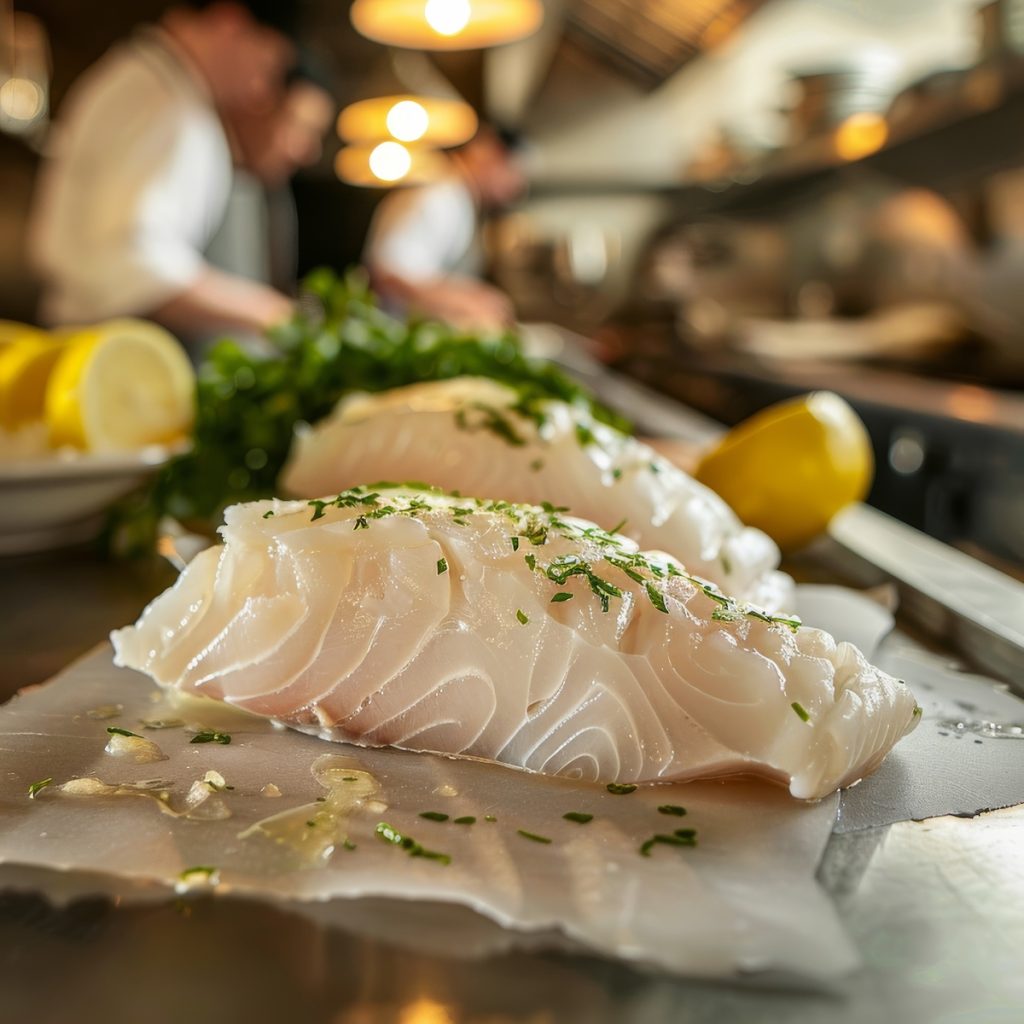
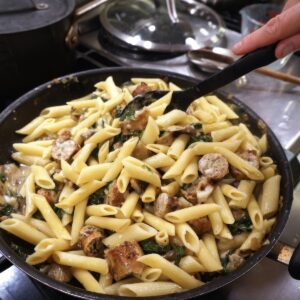
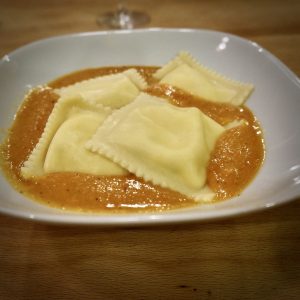




14 Responses
Heh, no, scrod is what’s left at the bottom of the barrel of fish, its not the freshest catch, LMAO!
Its amazing what people don’t know or how people rewrite reality to suit them.
Interesting Meribast but I disagree. Do send me a link where I can read about that definition. I have not heard that one before.
I think you’re confusing scrod with “chum”.
In New England, scrod can mean cod fish, scrod Haddock or scrod pollock, it’s the younger size of the fish
Thank you Jim for that clarification.
Boats were out days at a time. The fish on top of the hold were the freshest fish. SCROD is derived from SKIPPERS CATCH ROGHT OFF THE DOCK. SCROD
I was always told it stood for small caught right off dock. Whatever story you have it’s usually a very economical but tasty piece of fish. I like mine broiled or baked with buttery ritz crackers!!
Since today you never know what you’re really getting in a fish market scrod meaning more than one variety of fish is inane. It’s either cod, pollack or haddock. Know what you’re buying. Goose fish is now monkfish scammed at the fish store,
I live in Cape Cod andI thought scrod was small cod. So glad I did not ask for it at fish market yesterday! Like the “right off the dock” translation though. Thank you for enlightening me!
Scrod is any ‘baby’ white fish.
SCROD is actually an acronym that stands for “Seaman’s Catch Received On Deck” and it is always taken off of the top the holding tank which are the last fish caught so they’re always the freshest!
Thanks for letting me know about that acronym.
I asked my fish salesman at the Market Basket here in Massachusetts, and he said it stands for “small catch haddock remaining on deck”, thus SCROD! Just another opinion. I thought I would contribute. ??
HI Marianne, thanks for this definition. It goes with many others that I’ve read about,including: Smallest Catch, Remaining On Deck, Special catch-received on day, Seafood-Catch-Run-Of-Day, ship’s catch remaining on board, SCRaps eaten On Deck, and the list goes on. I’ve seen the term “schrod” for haddock.